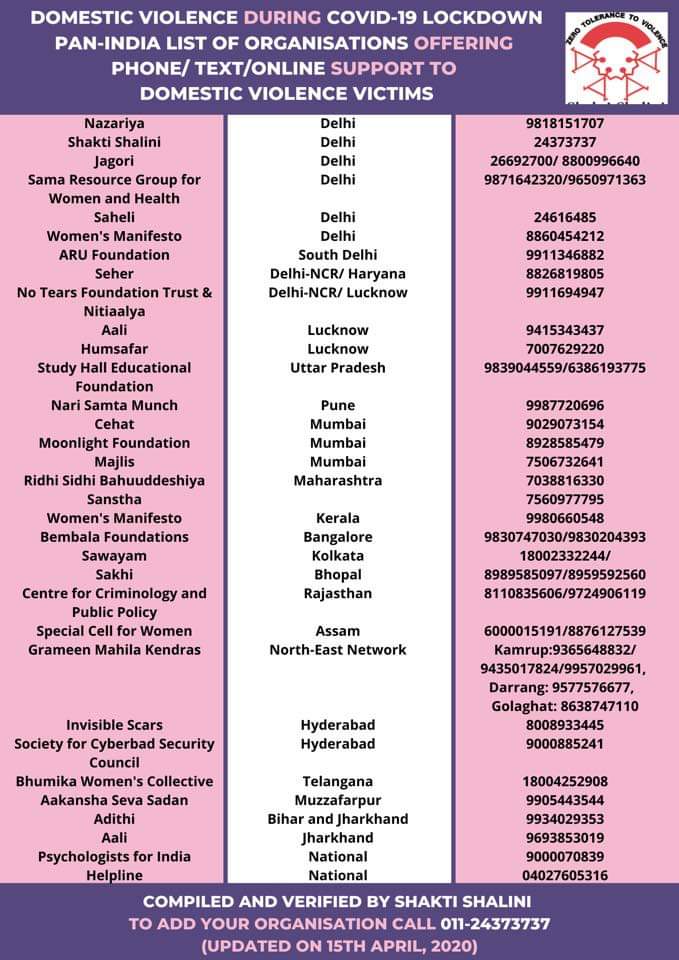Countries across the globe are dealing with the pandemic of COVID-19 and driving efforts to reduce its transmission. This unprecedented crisis however unfolds in the context of varied pre-existing and deep seated inequalities and social, economic and political deprivations faced by many persons belonging to vulnerable groups in the society. Gendered realities and their intersections with varied aspects such as caste, class, ethnicity, disability etc is one such dimension that may exacerbate the impacts of the current crisis on women, girls, transpersons and so on. As we witness the norms of physical distancing, isolation, mobility restraints as per the lockdown measures being widely adopted across the countries; this has globally led to exacerbated situations of violence against women, girls and others. Rightly so the gender based violence (GBV) has been declared as ‘shadow pandemic’ by UN Women-suggesting that countries across the globe must deal with this crisis as part of overall pandemic response.
In India too, within the first week of lockdown period, the crisis situations for many survivors of violence seeking support emerged through varied sources (organisations/activists working on GBV) including the formal briefing of this crisis held by by National Commission for Women. The lockdown has aggravated situations of violence that happen to people on the basis of their gender, sex, or sexual orientation. Being restricted within homes/families has meant for many women and others to be isolated with their abusers. Limited access to support and to movement due to suspension of transport, closure of work and other social spaces have predictably led to this scenario as the lockdown created barriers for those who want to move out of situations of violence. Episodes of violence also lead to adverse health impacts ranging from immediate and acute to long lasting and chronic health consequences. All the survivors need healthcare and services including medical emergency care in extreme situations, medico-legal assistance, psychological counseling, sexual and reproductive health related services — a crucial need that has become suspended/uncertain amidst the lockdown.
Several women’s rights organisations, networks, feminist activists are collectivizing their efforts to respond to this situation of crisis vis-à-vis GBV in the context of lockdown/pandemic.
Sama – Resource Group for Women and Health has adopted the crisis response in this current scenario and offering helpline services for survivors in situation of violence, along with varied other organisations through a coordinated effort.
Here is a compiled list of organisations across varied states/regions offering support to survivors of domestic violence during lockdown. The list has been compiled by Shakti Shalini.





